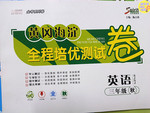题目内容
We spent a day in the country, picking wild flowers. With the car full of flowers we were going home. On our way back my wife noticed a cupboard outside a furniture shop. It was tall and narrow. “Buy it,” my wife said at once. “We’ll carry it home on the roof rack(行李架), I’ve always wanted one like that.”
What could I do? Ten minutes later I was 20 pounds poorer, and the cupboard was tied onto the roof rack. It was six inches long and eighteen inches square, quite heavy too.
In the gathering darkness I drove slowly. Other drivers seemed unusually polite that evening. The police even stopped traffic to let us through. Carrying furniture was a good idea.
After a time my wife said, “There’s a long line of cars behind. Why don’t they overtake, I wonder?”
In fact a police car did overtake. The two officers inside looked at us seriously as they passed. But then, with great kindness, they led us through the rush-hour traffic. The police car stopped at our village church. One of the officers came to me.
“Right, sir,” he said. “Do you need any more help?”
I was a bit puzzled. “Thanks, officer,” I said. “You have been very kind. I live just on the road.”
He was staring at our car: first at the flowers, and then at the cupboard. “Well, well,” he said, laughing. “It’s a cupboard you’ve got there! We thought it was, something else.”
My wife began to laugh. Then the truth hit me like a stone between the eyes. I smiled at the officer. “Yes, it’s a cupboard, but thanks again.” I drove home as fast as I could.
52. It can be inferred from the passage that______.
A. other drivers let the couple go first, because the husband did not drive fast
B. the cupboard cost less than 20 pounds
C. the husband, in fact, would rather not buy the cupboard
D. all the cars followed the couple’s

CABD

 黄冈海淀全程培优测试卷系列答案
黄冈海淀全程培优测试卷系列答案One Sunday a few of us decided to take advantage of the first sunny day we’d have for ages to take a trip down to the coast to visit the penguins again. Last time I went down there was a couple of months ago and it was a dull cold day. Sunday couldn’t have been more different — clear skies and sunshine made it feel like summer, although it was still -25°C.
Six of us drove to the coast. It was the first time we’d been off the base on our own without our field assistant, so it had a slightly different feeling — more like a few friends going to the seaside than an Antarctic field trip! When we reached Windy Creek, we luckily caught sight of quite a few small flying seabirds, which are seldom seen there.
Once on the sea ice we found that some of the more curious penguins had wandered over from the main group to come and check us out. We’d been told that then they were nursing their chicks (刚孵出的幼雏) and they would be more careful and nervous than last time, but that didn’t seem to be the case. We walked across to the main group which were stretched for a couple of miles along the coast. We sat down for some sandwiches and soon found ourselves surrounded by many curious observers. Without any attackers on land, they were very brave and came within a meter of us to pose (摆姿势) for photos.
Before heading back, we spent a few hours on the sea ice watching the penguins and their chicks, which had grown dramatically (明显地) since our last visit. It was such a nice day.
【小题1】
When did the trip most probably happen?
| A.On a dull Sunday. | B.On a warm Sunday. |
| C.On a summer Sunday. | D.On a winter Sunday. |
It can be inferred from the second paragraph that the six people _____.
| A.felt a little nervous |
| B.felt a little excited |
| C.were left all by themselves on their Antarctic base |
| D.got bored with staying with their field assistant |
What does the writer mean by saying “but that didn’t seem to be the case”?
| A.They were told a lie. |
| B.A wrong decision was made. |
| C.The truth was the opposite. |
| D.They didn’t believe what they were told. |
The six people did the following during the trip EXCEPT _____.
| A.feed the penguins |
| B.take pictures of the penguins |
| C.enjoy watching flying seabirds |
| D.watch the young penguins |